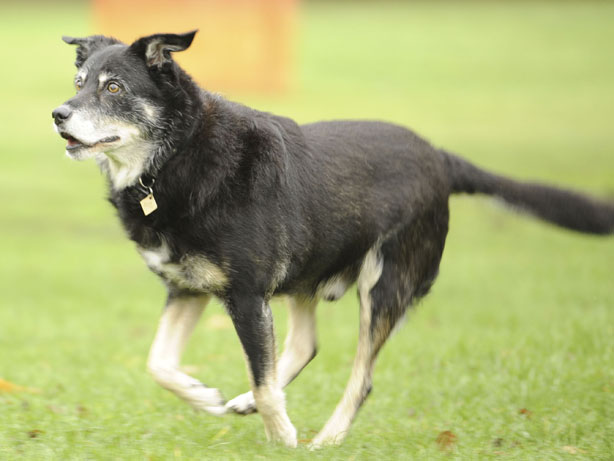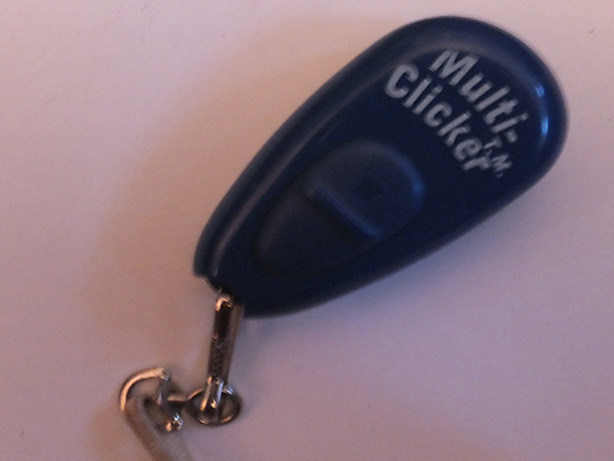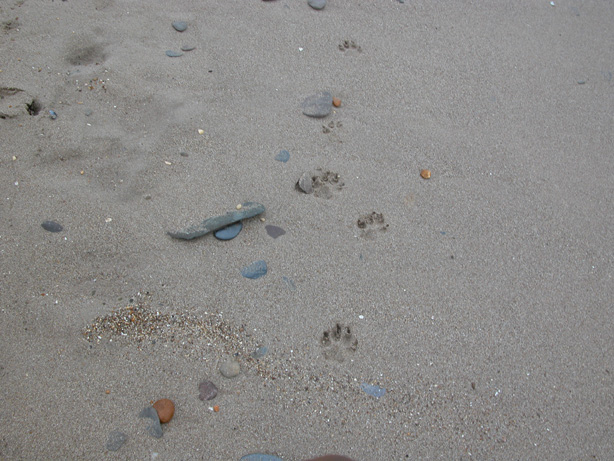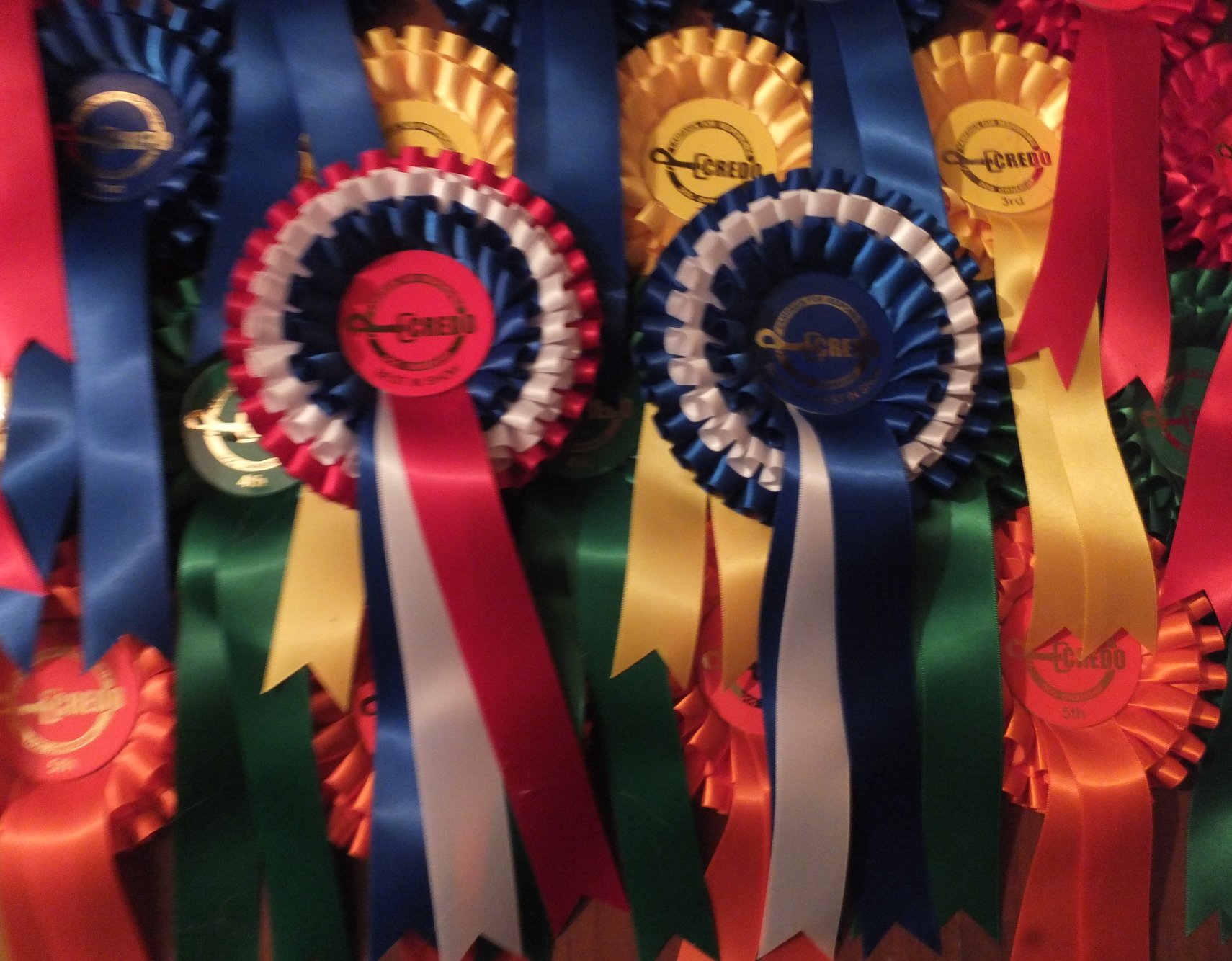
Keep Your Dog Safe In Water
 In a spell of hot weather and with holiday destinations opening up, it can be tempting to let dogs play in water.
In a spell of hot weather and with holiday destinations opening up, it can be tempting to let dogs play in water.
Dogs can have a lot of safe fun, but never let a dog go into water that you don’t know. Hidden hazards include débris, currents, tangling weed and pollutants. be especially careful of water that is an unusual colour; toxic algae can turn water turquoise, green, blue, red and brown and can be fatal to dogs and humans. Seawater can make a dog’s skin dry and flaky and the coat dull, particularly if they are susceptible to skin irritations. Always rinse off seawater with freshwater and make sure that your dog does not drink it. Seawater can be polluted and contain harmful flotsam especially after heavy rains when sewage may have been discharged directly from outflows.
Rivers can be dangerous at low tide as mud can engulf dogs and humans very quickly.
Use a harness and a long line so that you can control your dog at all times and if you do get into trouble, contact the coastguard on 999.
Coughing Up
 Canine infectious upper respiratory tract infection, commmonly known as kennel cough, is very prevalent at the moment.
Canine infectious upper respiratory tract infection, commmonly known as kennel cough, is very prevalent at the moment.
It is caused by various agents including Bordetella bronchiseptica (Bb), canine adenovirus type 2 (CAV-2), canine distemper virus (CDV), canine herpesvirus (CHV), canine parainfluenza virus (CPiV), canine influenza virus (CIV), canine respiratory coronavirus (CRCoV) and canine pneumovirus (CnPnV). Dogs are likely to carry round some of these pathogens without problems, but an increase in viral load or the amount of the Bordatella bacterium can produce the characteristic signs of a hacking cough, loss of appetite, lethargy and raised temperature. It may sound as of your dog has something stuck in his throat as the cough often ends with a gagging acton, similar to human whooping cough.
It gained the name kennel cough because it is highly infectious and often endemic in kennel environments. Dogs can pick it up from the air, from fomites (human hands, clothing bedding etc) and from infected dogs. Cats and rabbits can also catch it and, very rarely, humans.
Generally speaking, most dogs will recover with rest but always check with a vet if you have a puppy or older dog or the signs are severe. Your vet can advise you about administering cough medicine to help your dog – and you – get some sleep.
Most importantly, keep your dog away from other dogs and keep exercise down to a minimum. You can vaccinate against Bordetella bronchiseptica and it will usually be required (two weeks beforehand to allow immunity to develop) if you board your dog with a reputable kennels.
Action Plan for Animal Welfare
 DEFRA launched an Action Plan for Animal Welfare last month detailing many reforms that affect companion animals in addition to farm and working animals. Briefly:
DEFRA launched an Action Plan for Animal Welfare last month detailing many reforms that affect companion animals in addition to farm and working animals. Briefly:
- The Animal Welfare (Sentencing) Act will increase the maximum prison sentence for animal cruelty from six months to five years from June 29th, 2021
- Legislation will be drafted to introduce a new system of penalty notices for animal cruelty
- The number of dogs, cats and ferrets that can be moved under non-commercial travel rules will be reduced
- The minimum age that dogs can be moved or imported commercially into Great Britain will be increased
- Restrictions will be placed on the movement of pregnant dogs into Great Britain
- It will be an offence to import docks with cropped ears or docked tails or other cosmetic procedure that impacts on welfare
- A taskforce has been established to crack down on theft
- Microchipping will be compulsory for cats and a review will be undertaken of current microchip database systems, including consideration of making it compulsory for vets to scan microchips before euthanasia
- Pursue the licensing of animal sanctuaries, rescue and rehoming centres
- Ban remote controlled electronic training collars (‘e-collars’)
- Consider further protections for racing greyhounds
- Review the dangerous dogs legislation.
There is much that is laudable in this plan but, as ever, it will only be effective if backed by sufficient resources.
‘Til Divorce Do Us Part
 A dog is for life not just for the honeymoon? Throughout the decades from ten to fifty years of marriage, an average of a third will end in divorce. Cohabitation appears to lead to a greater chance of splitting up later in the relationship.
A dog is for life not just for the honeymoon? Throughout the decades from ten to fifty years of marriage, an average of a third will end in divorce. Cohabitation appears to lead to a greater chance of splitting up later in the relationship.
Many more couples are deciding not to reproduce which can mean that dogs and other companion animals become substitutes. Of course, many people get dogs because they want to live with a dog and, if they don’t want children anyway, have nothing to substitute. However, lots of companion animals are ending up being the subject of disputes when relationships collapse. A 2019 survey undertaken on behalf of insurers Direct Line found that 28,500 divorce cases a year involves custody of a companion animal, an average of 90 per day.
This causes huge problems because, of course companion animals are regarded in law as chattels but require as much care and consideration, as human offspring. Sensible couples are discussing such possibilities before they live together and can now avail themselves of a legal agreement. Divorce lawyers Lloyd Platt & Co have collaborated with the Blue Cross to produce pro-forma documents in an attempt to reduce the number of animals that are surrendered for re-homing as well as to reduce the amount of acrimony caused by fighting over care.
There are two forms available; a simple Deed of Agreement that sets out who will take ownership in the event of a break-up and a more detailed Pet Nup. The Deed of Agreement can be used by anyone with joint care of a companion animal, for instance siblings or friends and considers designated ownership, responsibility for care and financial obligations. It also requires regular review. The Pre Nup goes into more details including who will be registered on the microchip database, who will be legally responsible in the event of any breeches of the law, rights for selling on or otherwise disposing of the animal to a third party, default ownership in the event of lack of compliance with the agreement, finances, including vet fees, holiday arrangements, breeding, accommodation (for instance landlord’s consent) and changes to or ending of the agreement.
Neither agreement overrides the law regarding companion animals, but Lloyd Platt believe that there is no reason why it should not be enforceable and at least indicates the intentions of the parties involved. Considering such an agreement also means that the subject is raised in advance – prepare for the worst, expect the best!
The Snip
 Vets in Greece have been on strike since last week in protest at the government’s proposal to introduce compulsory neutering for dogs and cats.
Vets in Greece have been on strike since last week in protest at the government’s proposal to introduce compulsory neutering for dogs and cats.
Greece has a serious problem with feral dogs and cats – or rather humans dumping dogs and cats when they can’t be bothered to look after them. TNVR programmes have failed elsewhere because they simply cannot keep up with the number of fresh abandoned and neutered animals and they have also been controversial in Greece. There is a legitimate argument that on its own, TNVR or TNR does nothing to improve welfare or social responsibility. Greece has attempted to remove large number of dogs from Athens with disastrous consequences. Athens alone is estimated to have 2 million feral dogs and cats, a population no doubt exacerbated by the Greek financial crisis. It also remains to be seen if Brexit cuts off the trade in street dogs that have usually been imported illegally into the UK under the Pet Passport scheme to fuel the current craze for owning a dog and to satisfy owners who won’t wait to get a dog from a breeder or who have been refused a dog from a domestic rescue.
The new bill proposes to introduce prison sentences and substantial fines for illegal trafficking of animals and theft of companion animals and penalties of up to €50,000 are stipulated for abuse including “poisoning, hanging, drowning, crushing and mutilation” of animals.
All well and good but it does seem that there is no provision for legitimate breeders to retain stud animals and there are fears for the preservation of local breeds such as the Cretan Hound.
The bill is due to be voted on following public consultation in June and the result could have implications for the many other countries that face similar problems.
Need It Like A Hole In The Head
 The UKKC lists the following defects as being a problem in the Chihuahua:
The UKKC lists the following defects as being a problem in the Chihuahua:
- Incorrect dentition
- Wry jaw
- Retained puppy teeth
- Misplaced teeth
- Protruding tongue as a result of incorrect teeth
- Missing teeth
- Incorrect bites
- Excessively short muzzles.
You could select any one of those and feel that the poor dog would need it like a hole in the head, but that is exactly what has been added to the litany of defects for the poor Chihuahuas: holes in the head.
Our colleagues at Pedigree Dogs Exposed have alerted us to a new paper which highlights the prevalence of persistent fontanelles – holes along the suture lines of the skull that expose the encased brain. Fontanelles are normal soft spots that enable growth and birth, but that should close between 9 and 12 weeks of age.
The failure of this process is common in small dogs, especially where breeders have deliberately created domed heads and smaller and smaller dogs. Some breeders have even made a fetish of an open fontanelle in the middle of the head (designated as a molera) and supposedly designating the “purity” of the breed.
This latest finding and earlier research by the same authors shows that as many as 90% of Chihuahuas suffer from holes in the skull: the smaller the dog, the larger the hole and the larger the amount of brain area exposed. There is also an association with syringomyelia and ventriculomegaly.
The simple solution is to breed bigger dogs without domed heads and short narrow muzzles. The difficulty is in persuading the breeders and show judges – the very people who purport to uphold the best in the breed – to agree and comply.
A Mystery Solved
 It has long been known that ingesting grapes – fresh or dried – can prove fatal for dogs but the mechanism of toxicity has hitherto remained a mystery.
It has long been known that ingesting grapes – fresh or dried – can prove fatal for dogs but the mechanism of toxicity has hitherto remained a mystery.
Now the Veterinary Poisons Information Service has revealed evidence provided in a letter to the Journal of American Veterinary Medicine Association that suggests that the culprit may be tartaric acid. Tartaric acid is a crystalline organic acid that occurs naturally in many fruits as well as grapes, including bananas, tamarinds and citrus. Its salt, potassium bitartrate (cream of tartar), develops naturally during fermentation. When mixed with sodium bicarbonate, it is sold as baking powder and used as a leavening agent.
The authors of the letter noted that dogs showed similar signs when poisoned by cream of tartar as when poisoned by grapes or raisins. The amount of tartaric acid and potassium bitartrate in grapes varies by the type of grape, growing conditions and growth stage, but is still sufficient to cause renal failure in dogs. The variation in tartaric acid concentrations means that it is not possible to ascertain the toxic dose.
Further research is required but ingestion of grapes and raisins should always be a cause for alarm and a vet should be contacted immediately for advice.
Speaking In Code
 Natural England and Natural Resources Wales launched a new countryside code on the inauspicious date of April 1st, 2021.
Natural England and Natural Resources Wales launched a new countryside code on the inauspicious date of April 1st, 2021.
The Countryside Code guidelines were first issued in 1951 and last updated a decade ago. There have always been problems with litter, fly tipping, livestock being harmed and damage to agricultural land and levels have been increasing in recent years. Covid-19 restrictions have seen horrific examples of fly tipping and littering and the increase in the number of new and irresponsible dog owners has probably, in part, been responsible for the increase in incidents of harm inflicted on livestock.
With this in mind, what are the priorities of the new code?
“New advice for people to ‘be nice, say hello, share the space’ as well as ‘enjoy your visit, have fun, make a memory’”
“A refreshed tone of voice, creating a guide for the public rather than a list of rules – recognising the significant health and wellbeing benefits of spending time in nature.”
It is difficult to know whether to cry or scream.
The countryside is not a giant theme park laid out for the pleasure of ramblers and casual visitors. It is the place that grows and rears our food, balances our climate, manages a balanced population of wildlife. It is the place where those custodians live and work, often extremely precariously. What would people think if they invaded towns and cities deposited manure in gardens, savaged pets and then went away again having demanded their right of access?
While those responsible for litter, fly-tipping and dog attacks on livestock are busy boosting their health and well being and making jolly memories of their incursion into the countryside, they leave the cost in time, effort and money of clearing up after them. That willingly continue to get worse until someone with considerably more sense and knowledge of the problems is allowed to create a proper revision and implementation of the Code.
Broken Wings
 Radio 4 aired a tribute to the director Peter Brook this morning that contained an interesting parable, pertinent to dogs.
Radio 4 aired a tribute to the director Peter Brook this morning that contained an interesting parable, pertinent to dogs.
Actor Glenda Jackson describes a scene from Brook’s 1966 production of the play US, an examination of the Vietnam War which had then been raging for 11 years.
The parable describes an English woman who is visiting Spain. She witnesses some boys tormenting a seagull which has a broken wing and tries to wrest it from them. When they resist, she pays them 10 pesetas for it and takes it back to her hotel to attempt to repair its wing. Sometime later, there is a knock at her door and she opens it to be confronted by a group of boys, each holding a seagull with a broken wing, demanding that they be paid too.
Her actions are motivated by a desire to do good, but cause far more harm because she makes no attempt to understand the antecedents that lead to the consequences. She does not even possess the necessary skills to heal the first seagull’s trauma.
Are we not doing the same when we import street dogs and expect them to settle in suburban homes?
In all honesty, the importation of such dogs is simply a case of supply and demand and the insistence from owners that they obtain a dog as soon as they want one. Rescues have made it extremely difficult for many potentially excellent owners to obtain a dog and there is now a massive culture of virtue signalling in taking in a previously unwanted dog.
The level of trauma in those dogs is only recorded in the individual cases where owners do obtain professional help and – more importantly – it has done nothing to stop more and more dogs from being dumped on the streets to join the indigenous feral dogs nor has it had any effect on animal cruelty in their home countries.
Anyone can set up a “rescue” but, while there will always be legitimate reasons for dogs to find new homes, how many are just fuelling the dumping and puppy farming by providing an easy outlet?
Uber Alles
 A landmark ruling in the USA holds out a ray of hope for the many people in the UK who are regularly refused access to hire vehicles when accompanied by their assistance dog.
A landmark ruling in the USA holds out a ray of hope for the many people in the UK who are regularly refused access to hire vehicles when accompanied by their assistance dog.
Ride-share company Uber has been obliged to pay out $1.1M in compensation after a blind woman was repeatedly refused access by its drivers and even stranded short of her destination. Ultimately, she was sacked from employment following multiple cancelled rides. Uber used the same excuse that it has made in attempts to elude responsibilities towards its employees by claiming that the company itself is not able because the drivers are contractors. This was rightly rejected by an independent arbiter, the second time that Uber has been rebuked for such violations.
It is of course too late to repair the damage once appointments have been missed and jobs lost, but hopefully this ruling may serve as a warning to all drivers that they cannot use the excuse of anti-canine prejudice to run roughshod over the law.



